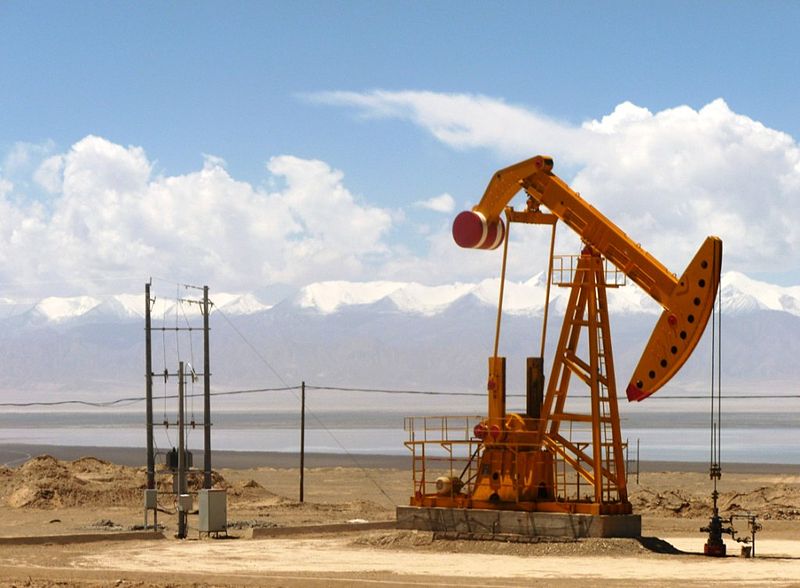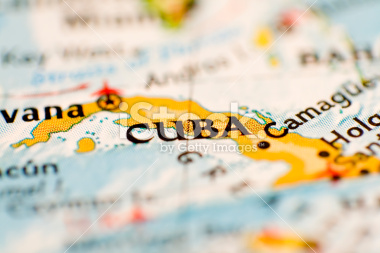Things seem relatively quiet on the Western Front these days. Central Asia, on the other hand, is becoming the stage for many exciting geopolitical developments, some of which promise to economically advance this underdeveloped part of the world. They also portend future challenges. Recent events like the Vostok war games, intrusive investments like China’s “One Belt, One Road” initiative, and disputes over national rights to the Caspian Sea indicate that the world is securitizing this sprawling region. NATO, with a presence in Afghanistan (2003- ) and Iraq (2018- ), is also heavily invested in its future. What are the most important things to keep an eye on in regard to this region going forward, and how should they be incorporated into a security strategy?
Marian Corera, Program Editor: Security, Trade, and the Economy
China’s ‘One Belt, One Road’ initiative is garnering a lot of attention in Central Asia. Chinese ambitions for the region include developing train networks that link up Asia and Europe, massive pipelines, and other infrastructure development projects.
Work is already underway on many fronts. China’s investments in railroads and landlocked ports in Kazakhstan have increased that country’s trade and transport capacities. Azerbaijan is part of the newly opened Trans-Anatolian Natural Gas Pipeline (TANAP), which has the capacity to transport natural gas from the Caspian Sea to Turkey, as part of the Southern Gas Corridor Program. The plan is to further expand this project and transport natural gas well into Europe.
China’s increased infrastructural investment in Central Asia is undoubtedly beneficial in helping to integrate local economies with global trade networks. However, discernment is required in determining which investments will lead to long-term economic growth and political security, and which ones will simply empower China, to little local benefit. Countries would do well to avoid a catastrophic investment such as the Mattala Rajapaksha International Airport, which Chinese loans helped create in Sri Lanka. While the grand scheme of a latter-day Silk Road that enhances global trade sounds progressive, individual countries need to strategize which investments are economically sound but politically wise. China is yet to establish a reputation for debt forgiveness. As such, having a prudent economic plan for the inflow of money is an important security strategy for Central Asian debtors. If countries fail to repay, China may well find creative methods of wiping the slate clean!
Justin Dell, Program Editor: NATO Operations
The current flurry of activity in Central Asia recalls the “scramble for Africa” in the late nineteenth century. Every major European power (and even minor ones, like Belgium) wanted a ‘slice’ of a continent that had been relatively ignored up until that point. Some sought glory in conquest. Others wanted religious converts. But the opportunity to exploit the tantalizing resources Africa had to offer was certainly a driving force behind the European colonization of that continent. Historians widely acknowledge that Germany’s late arrival to this imperial feeding frenzy was as an important factor in the train of events that led to the Great War. That was one hundred years ago. Is the world witnessing a similar phenomenon, albeit in a different theatre?
Obviously, history does not repeat itself. But sometimes it rhymes. The most important players in the coming competition over Central Asia will, naturally, be Asian states. China is undoubtedly the ‘Germany’ of this scenario – a rising power, temporally behind in staking its claim to colonies, catching up, and threatening to surpass other players in the region. Russia and some of the more traditional regional hegemons are clearly on the defensive. The competitiveness of this environment is too intense for any united front of rising Eastern powers to form against the ‘West’. In one scenario, Russia can either jockey with China for the domination of Central Asia, or it can be China’s vassal – providing it with raw materials as Beijing calls the shots – in another. But there will not be a partnership of equals between these two states.
China has had the luxury of being self-absorbed since Deng Xiaoping introduced reforms to China in the 1980s. So far, it has focused on building up its industrial plant within its own borders. Now, with its sudden offensive in foreign direct investment (FDI) in other lands, development of its hitherto ignored western, non-Han Chinese provinces, and economic expansion into Central Asia, China will be out of its comfort zone and will experience the burdens of imperialism. The Chinese state bureaucracy’s poor track record of dealing with non-Chinese cultures and its reputation for heavy-handed negotiating positions threaten to sow resentment among Central Asians. As the United States has painfully learned through forty years of involvement in the lands of the Middle East, Muslim populations (who form that majority in Central Asia) are very sensitive to foreign intrusion and domination.
NATO, therefore, can count on the difficulties inherent in the situation ‘on the ground’ in Central Asia, and the competition between major non-democratic countries in Asia, to severely weaken the forces of autocracy there. What should cause it some concern is the question of whether the nascent democracies in Iraq and Afghanistan – countries in which so much blood and treasure has been nobly sacrificed by NATO members – will ride out these coming waves. These two countries are isolated democratic enclaves with weak civic institutions surrounded by a sea of poverty and despotism. Their temptation to abandon their respective democratic experiments will be great. Ensuring their survival might be reason enough for NATO to maintain or even step up its commitment to them in coming years.
Taylor Allen, Program Editor: Canada’s NATO
I think Asia is going to progressively become a more and more relevant and important arena in the international sphere. There are ongoing conflicts and sources of tension in the region: China’s maritime and territorial conflicts in the South China Sea and Taiwan, the Kashmir/Pakistani border conflict, and the spectre of nuclear proliferation looming over the Korean Peninsula. Naturally, the international community must keep a watchful eye on these. However, I think sources of concern for future stability in the region exist on multiple planes, not just on the traditional military level; one of these is the shifting tides of the global economy.
India is predicted to overtake the United Kingdom and France as the fifth largest economy, the value of Indonesia’s currency has dropped nearly 75% in the last decade, North Korea attempts to appear strong and independent in the international arena whilst grasping for aid for its millions of subjects who are impoverished and starving, and narcotics and human trafficking in Asia give witness to the expansion of the black market there. What we are seeing is fluctuation and instability in the economic state of the continent. With trade wars becoming a very prominent issue in current international politics (like the NAFTA issue or the German-Russian energy pipeline and its ramifications), and the rise in power and influence of some Asian nations (China, India, Japan, Singapore) apparent, I believe money will be among the greatest factors in future conflicts.
Wafa Ghanmi, Program Editor: Emerging Security
During the Napoleonic Wars, the warring governments of France and Britain took measures against neutral ships transporting enemy goods. Meanwhile, Napoleon authorized food exports to his belligerent saving the British people from starvation: He hoped to subdue his enemy by disturbing its trade balance. At the core of such a strategy is the mercantilist doctrine, which postulates that maximizing exports and minimizing imports is the safest path towards prosperity. Between the 16th and the 18th century, trade was regarded as a zero-sum game and the importance of exports to a nation’s growth was almost incontestable in Europe, a truism emphasized in Adam Smith’s Wealth of Nations.
The correlation between industrialization and economic growth, also known as the “Export-Led Growth Hypothesis”, is today’s core issue at any inter/intranational conflicts. It is no secret that foreign trade plays a crucial role as a driver of economic growth; and the key word: Resources. Throughout history, there has never been only mere political issues, no matter how “political” they might seem. Nations are fighting for their industries to grow, for their businesses to boom, for their people to become richer. Land and Sea are the starting point: that is where we harvest our resources, or what we tend to call in modernistic terms “sovereignty”.
Sovereignty is economics. Politics is economics. It is a never-ending war, and what NATO or other international organizations like WTO can do is merely stop the greedy and help the poor (poor in resources in this respect) by establishing and solidifying the rule of law, where fair trade and resources conflicts are given high priority.
Julia Schaumer, Program Editor: Women in Security
Central Asia has had a tumultuous history of foreign rule and domination, especially at the hands of the USSR, whose legacy has been long lasting. After its dissolution, the newly independent states in the region were not very well equipped to function independently, and to this day they still lack the adequate legal, political, administrative, and law-enforcement infrastructures needed to be able to boost economic development.
Some of the important things that require attention in the region at present include the rise in terrorist recruitment, the increased geopolitical presence and influence of China and Russia, widespread transnational organized crime, the ongoing internal regional conflicts involving water and energy security, and the acrimonious relations between ethno-cultural pluralities in Central Asian states.
Economic fragility is at the core of problems facing Central-Asian countries, which has been conducive to the aforementioned issues. This vulnerability helps pave the way for corruption at all levels of the political spectrum, which then results in the springing of an oasis in which transnational organized crime can flourish.
Going forward, it would benefit both NATO and Central-Asian countries to incorporate a security strategy that involves a ‘bottom-up’ approach to kick-starting regional economies in order to tackle the symptoms of economic malaise. By promoting domestic economic stability first, via a grassroots-level approach, states in this region would have the means to bolster their waning institutional infrastructures, establish good governance, and fend off increasing domination from outside powers looking to cultivate their power-politics agenda.
Photo: An oil derrick hums along against the backdrop of western China’s steppes. By John Hill via Wikipedia Commons. CC BY-SA 3.0.
Disclaimer: Any views or opinions expressed in articles are solely those of the authors and do not necessarily represent the views of the NATO Association of Canada.



